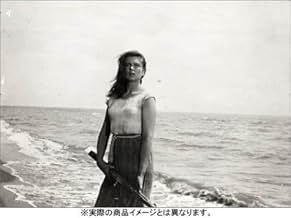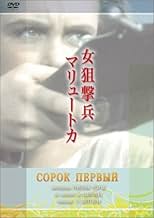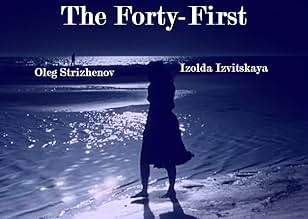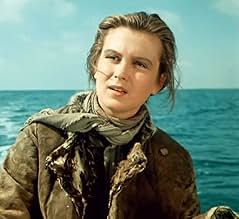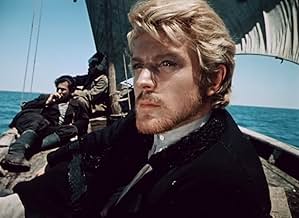Sorok pervyy
- 1956
- 1 घं 28 मि
IMDb रेटिंग
7.5/10
1.8 हज़ार
आपकी रेटिंग
अपनी भाषा में प्लॉट जोड़ेंAn unexpected romance occurs for a female Red Army sniper and a White Army officer.An unexpected romance occurs for a female Red Army sniper and a White Army officer.An unexpected romance occurs for a female Red Army sniper and a White Army officer.
- पुरस्कार
- 1 जीत और कुल 1 नामांकन
Nikolai Dupak
- Soldier Andrei Chupilko
- (as N. Dupak)
Georgi Shapovalov
- Soldier Terentyev
- (as G. Shapovalov)
Lev Kovylin
- Soldier Kovylin
- (as L. Kovylin)
Yuriy Romanov
- Soldier Vyakhir
- (as Yu. Romanov)
Daniil Netrebin
- Soldier Semyannin
- (as D. Netrebin)
Asanbek Umuraliyev
- Soldier Umankul
- (as A. Umuraliev)
Anatoli Kokorin
- Soldier Yegorov
- (as A. Kokorin)
Vadim Sinitsyn
- Wounded soldier
- (as V. Sinitsyn)
Kirey Zharkimbayev
- Timerkul
- (as K. Zharkimbayev)
कहानी
क्या आपको पता है
- कनेक्शनFeatured in Fejezetek a film történetéböl: A szovjet film 1953-1970 (1990)
फीचर्ड रिव्यू
Grigori Chukhrai's film, The Forty First, sets itself up to be understood as a mythic series of events; the opening scene's churning waves seem to take the viewer away to a different world and the narration sets the story in the post-Revolutionary Civil War. This narration gives the effect of a story being told, and the way the landscape is portrayed creates an unreal landscape. The colors always seem too saturated and the sky hangs close and heavy over the actors, giving the appearance of a fish bowl. Maryutka's inclusion in the plot attests to the Bolshevik ideal of gender equality, making a break with Stalinism's reinstatement of traditional gender roles; her being referred to as an "Amazon" enhances the mythic quality of the film. Chukhrai consciously constructs shots that juxtapose; the scene of Maryutka and the White Army lieutenant walking separate on the beach contrasts the two in space as they both walk in different points of the frame in different directions. The final scenes are obviously ideological: the dialogue is crafted as a metaphor for Tsarist Russia and Communist Russia, with the lieutenant (Tsarism) pleading Maryutka (Communism) to return to how they were before the fighting; the officer's dangling cross necklace is an ever-present symbol of Imperial Russia, designating that even when all visual indicators of partisanship are gone (as he and Maryutka's uniforms have been destroyed by the elements), there is still an irreconcilable difference present. The last scene illustrates the valuation of duty over emotions. Besides the smartly handled ideology, the visual effects are The Forty First's strengths. The color palette and the contrasts it creates are striking, and create a hazy, dreamlike world in which a legend is played out.
- samanthamarciafarmer
- 9 दिस॰ 2015
- परमालिंक
टॉप पसंद
रेटिंग देने के लिए साइन-इन करें और वैयक्तिकृत सुझावों के लिए वॉचलिस्ट करें
- How long is The Forty-First?Alexa द्वारा संचालित
विवरण
इस पेज में योगदान दें
किसी बदलाव का सुझाव दें या अनुपलब्ध कॉन्टेंट जोड़ें



